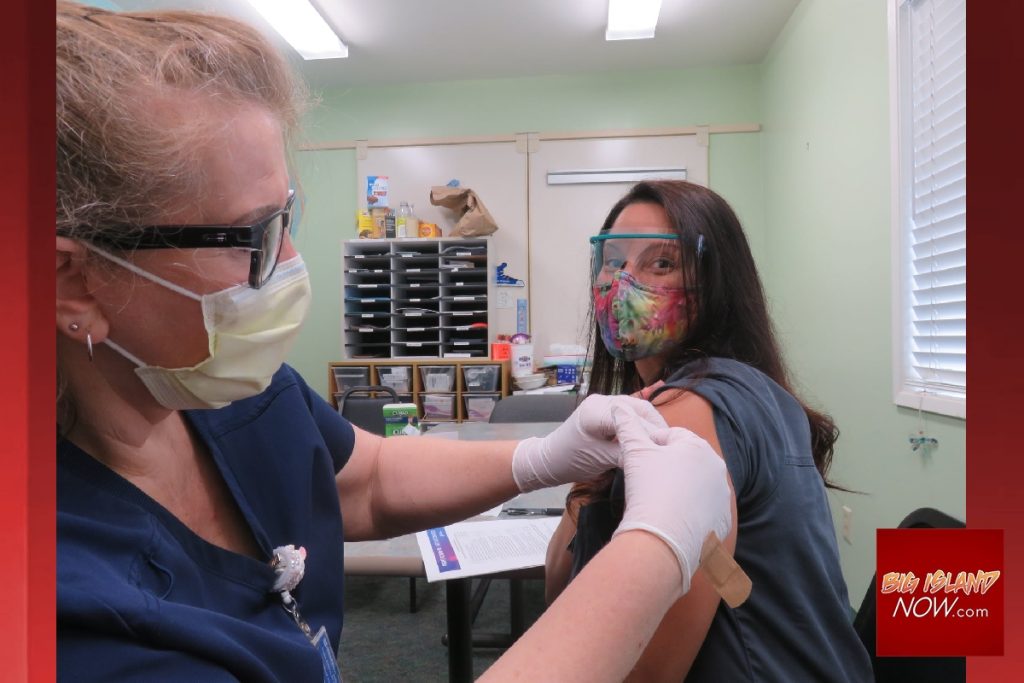Federal Public Health Emergency ends today for COVID-19, but disease has not disappeared
The federal Public Health Emergency for COVID-19 will end on May 11, 2023.
This action was taken because high levels of vaccination, widespread population immunity and available treatments have significantly reduced the risk of severe COVID-19 disease, hospitalization and death in the United States.
But it does not mean the disease has disappeared.
Hawaiʻi State Health Director Dr. Kenneth Fink said in a news release: “Although the federal [Public Health Emergency] is ending, we’ve learned that we must remain vigilant and continue to invest in public health preparedness.”
According to the Centers for Disease Control and Prevention and the U.S. Department of Health and Human Services, the end of the emergency means:
- Vaccines will remain available. Access to COVID-19 vaccines will generally not be affected for now. The U.S. government is currently distributing free COVID-19 vaccines for all adults and children.
- COVID-19 at-home tests may not be covered by insurance. Insurance providers will no longer be required to waive costs or provide free at-home COVID-19 tests. COVID-19 tests ordered by healthcare providers when clinically indicated are generally expected to be covered by insurance but may have cost-sharing.
- For people with Medicaid coverage, COVID-19 testing and treatment will remain covered at no cost through September 2024.
- No cost testing may be available to people without insurance or in areas of high social vulnerability through CDC’s Increasing Community Access to Testing program. Participating community and pharmacy partners can be located through CDC’s No Cost COVID-19 Testing Locator.
- CDC will discontinue reporting of COVID-19 community levels and some other COVID-19 metrics like percent positivity. These changes are because of changing laboratory requirements with the end of the Public Health Emergency, and also because case data has become less reliable with the popularity of self-testing that is not reported.
The Hawai’i Department of Health reports:
- Sometime later this year, COVID-19 vaccines are anticipated to become commercially available, and DOH will provide more information on this transition to providers and the public as it becomes available. DOH remains committed to working with providers and federal agencies to ensure equitable vaccine supply for Hawai‘i residents.
- DOH will continue to partner with long-term care facilities, other healthcare and congregate settings, schools and community organizations to investigate illness clusters and outbreaks of concern, provide technical assistance and educate partners and the public on how to mitigate the impacts of COVID-19.
- DOH will continue to maintain dashboards that provide situational awareness of COVID-19 trends and impacts in Hawai‘i.
- While masks are no longer required in public settings in the state of Hawai‘i, use of a properly fitting high quality mask remains an important tool for preventing COVID-19 and many other respiratory illnesses. Those with high risk of severe disease, such as kūpuna and those with chronic medical conditions, and those who interact closely with these groups, should consider wearing a mask in situations where social distancing is not possible.
- Vaccines are still the best tool for preventing infection or severe illness from COVID-19. It is recommended for anyone over 6 months of age. Anyone who has not yet received a bivalent vaccine dose should get one. And anyone who is at increased risk for severe infection and has received a bivalent dose should consider receiving a second dose. Bivalent vaccines provide better coverage for the variants of COVID-19 currently in the community. Detailed vaccine recommendations can be found here. Find your nearest COVID-19 vaccine provider at Vaccines.gov.
- Vaccinations and masking are particularly important for people who are immunocompromised or for those who have frequent contact with individuals who fall into this category.














